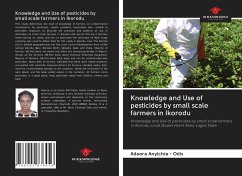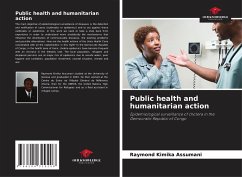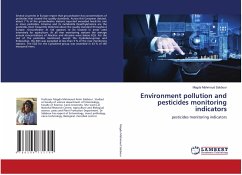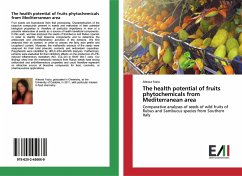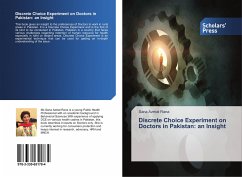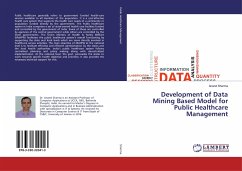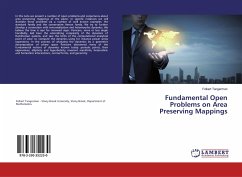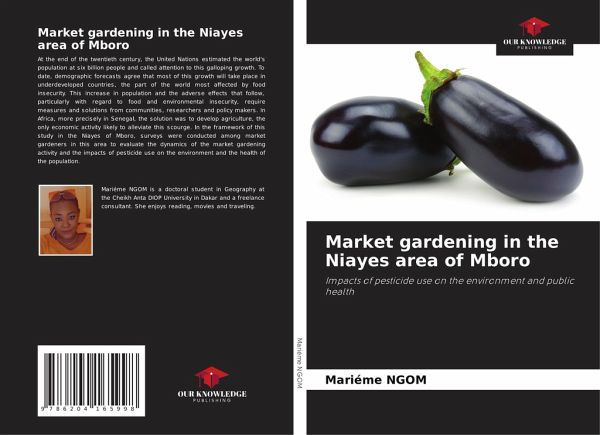
Market gardening in the Niayes area of Mboro
Impacts of pesticide use on the environment and public health
Versandkostenfrei!
Versandfertig in 6-10 Tagen
36,99 €
inkl. MwSt.

PAYBACK Punkte
18 °P sammeln!
At the end of the twentieth century, the United Nations estimated the world's population at six billion people and called attention to this galloping growth. To date, demographic forecasts agree that most of this growth will take place in underdeveloped countries, the part of the world most affected by food insecurity. This increase in population and the adverse effects that follow, particularly with regard to food and environmental insecurity, require measures and solutions from communities, researchers and policy makers. In Africa, more precisely in Senegal, the solution was to develop agric...
At the end of the twentieth century, the United Nations estimated the world's population at six billion people and called attention to this galloping growth. To date, demographic forecasts agree that most of this growth will take place in underdeveloped countries, the part of the world most affected by food insecurity. This increase in population and the adverse effects that follow, particularly with regard to food and environmental insecurity, require measures and solutions from communities, researchers and policy makers. In Africa, more precisely in Senegal, the solution was to develop agriculture, the only economic activity likely to alleviate this scourge. In the framework of this study in the Niayes of Mboro, surveys were conducted among market gardeners in this area to evaluate the dynamics of the market gardening activity and the impacts of pesticide use on the environment and the health of the population.




